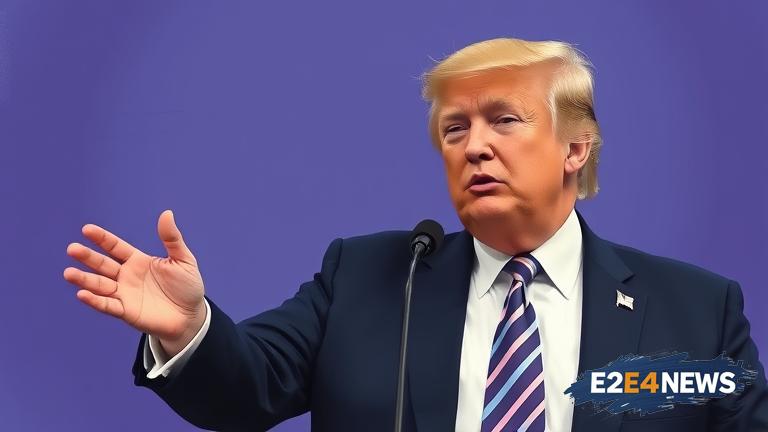Former President Donald Trump has publicly criticized Republican Senator Josh Hawley for his support of a bill aimed at regulating congressional stock trading. The bill, which has been gaining traction in recent months, seeks to prevent members of Congress from engaging in insider trading by requiring them to disclose their financial transactions. Trump’s criticism of Hawley has sparked a heated debate, with some arguing that the bill is necessary to prevent corruption and others claiming that it is an overreach of government power. The bill has been introduced in response to several high-profile cases of members of Congress being accused of insider trading, including Senator Richard Burr and Senator Kelly Loeffler. Hawley has been a vocal supporter of the bill, arguing that it is necessary to restore trust in government and prevent corruption. However, Trump has taken issue with Hawley’s support, claiming that the bill is unnecessary and that Hawley is being disloyal to the Republican party. Trump’s criticism has been met with backlash from some Republicans, who argue that the bill is a necessary step to prevent corruption and restore trust in government. The controversy has highlighted the ongoing debate over congressional stock trading and the need for greater transparency and accountability in government. The bill has also sparked a wider conversation about the role of money in politics and the need for greater regulation of financial transactions. Despite the controversy, the bill has gained significant support from both Democrats and Republicans, and it is likely to continue to be a major issue in the coming months. The bill’s supporters argue that it is necessary to prevent members of Congress from using their positions for personal gain, and that it will help to restore trust in government. However, opponents of the bill argue that it is an overreach of government power and that it will unfairly restrict the ability of members of Congress to invest in the stock market. The debate over the bill has also highlighted the ongoing tension between Trump and Hawley, who have had a complicated relationship in the past. Hawley has been a vocal critic of Trump’s policies, and Trump has responded by criticizing Hawley’s loyalty to the Republican party. The controversy has also sparked a wider conversation about the role of the Republican party in promoting transparency and accountability in government. Some have argued that the party has failed to take adequate steps to prevent corruption, and that the bill is a necessary step to restore trust in government. Others have argued that the bill is a partisan attempt to restrict the ability of Republicans to invest in the stock market. The debate over the bill is likely to continue in the coming months, with both supporters and opponents of the bill arguing that it is necessary to prevent corruption and restore trust in government. The bill’s fate remains uncertain, but it is clear that it has sparked a significant controversy and highlighted the ongoing debate over congressional stock trading. The bill has also raised questions about the effectiveness of current regulations and the need for greater transparency and accountability in government. The controversy has also highlighted the importance of ethics and transparency in government, and the need for members of Congress to be held to a higher standard. The bill’s supporters argue that it is necessary to prevent corruption and restore trust in government, and that it will help to promote transparency and accountability in government. The debate over the bill is likely to continue, with both supporters and opponents of the bill arguing that it is necessary to prevent corruption and restore trust in government.
